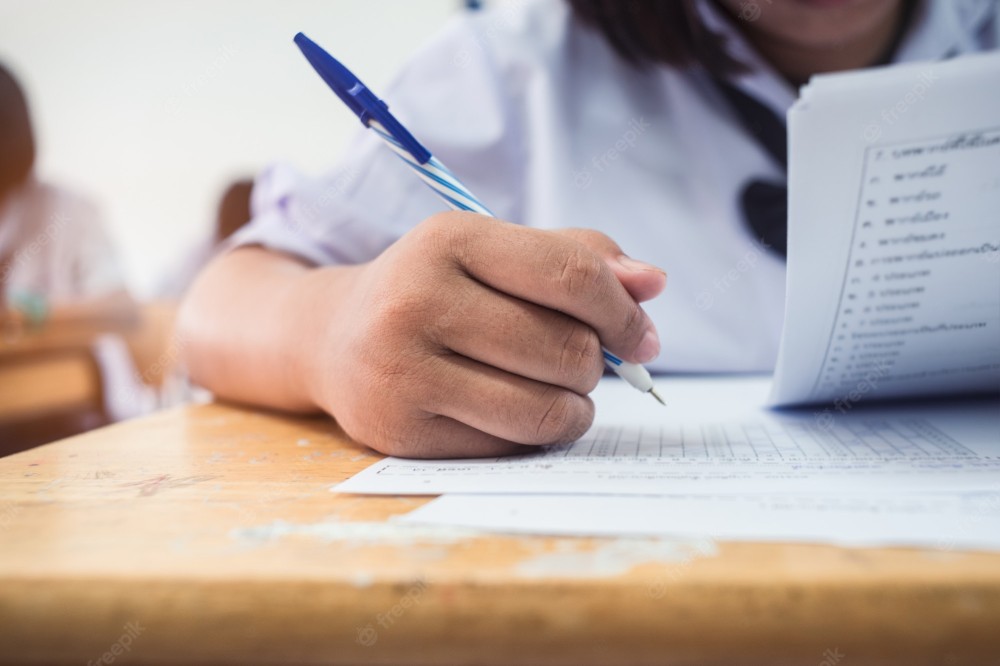The main purpose of education is, arguably, to build worthy individuals of character. Most would agree that this has fallen by the wayside with disastrous consequences. Perhaps it is time for schools to seriously introspect. For a while, some of us have been agonising over the shape that school education is taking, especially in our cities. Success in examinations and entry into prestigious institutions preoccupy us to the extent that IIT coaching begins as early as middle school. We cannot expect today’s consumerist society, with all its attending ills, to change unless we focus on the formation of character in our young. But how do we achieve this?
Serendipitously, I found some answers in a book titled Education & Educational Philosophy — Selected Writings, Letters and Speeches of John Moore S.J. All of Moore’s thoughts resonate even louder today so I thought I should discuss some of them. John Moore insisted that those occupied in the work of education must carry the spirit of god within. Instead of fashionable secularism or the dominance of one religion only — all faiths must be warmly welcomed in our schools. It must be understood, especially in the age of STEM and robotics, that not everything can be dealt with through ratiocination — we also need faith and trust. We must be aware of our humanity and even the sciences must have a human face. We must try to achieve educational excellence through reflection and contemplation rather than stressful competition.
Throughout his working life, John Moore believed that apart from falling far short of India’s rich educational heritage, the Indian ‘system’ did not fulfil the needs of modern India. Moreover, the tinkering that is done with the system from time to time was hopelessly inadequate — a thorough overhaul was urgently required. (I am not sure that the National Education Policy 2020 represents this overhaul — we have to wait and see.) Moore’s ideas may be adopted regardless of board or curriculum. In other words, we need to run our institutions the way we want to, rather than allow them to be run by the board and the curriculum.
In any case, a school is not to be regarded as an institution but a “community of mutually caring people”. This community must not learn from ‘subjects’, but from life itself and from the relationships that are developed with others who come from different walks of life. An abundance of personal freedom must be enjoyed by students and it is to be limited by a minimum of external discipline. The guiding principle of the school must be to get the best out of each student and teacher, following the Jesuit principle of cura personalis — concern for the individual as an individual. A student is much more than a potential examinee and a teacher’s worth must never be measured by success in examinations. Information, skills and preparation for a career may be important, but what is most significant is the full growth of each pupil leading to action which springs from a readiness for responsibility. (Dietrich Bonhoeffer)
Parents who are only concerned with academic success that would open the doors of reputed universities or with the kind of success that gains ‘prestige’ for the family must not be pandered to. Rather, the school must gain parents’ trust in the school, which nurtures students to face the future with confidence, self-discipline, moral courage and an attitude of altruism. Schools must resist the so-called philosophical currents which in reality are ‘“the effluent from the gutters of a period of Western spiritual degeneracy”. Schools should shape students the way gurus prepared theirs for the world outside the ashram.
Discipline, which plays such an important part in our reputed schools, must never be regarded as a value in itself. It is self-discipline that schools must instil in students and it should be the goal of teachers to help their students become independent learners and assume responsibility for their own education. Teachers must genuinely care for under-performing students instead of focussing on the able ones who will enhance the reputation of the school. It is the deprived, under-resourced and challenged who need us the most.
Devi Kar is director, Modern High School for Girls, Calcutta











